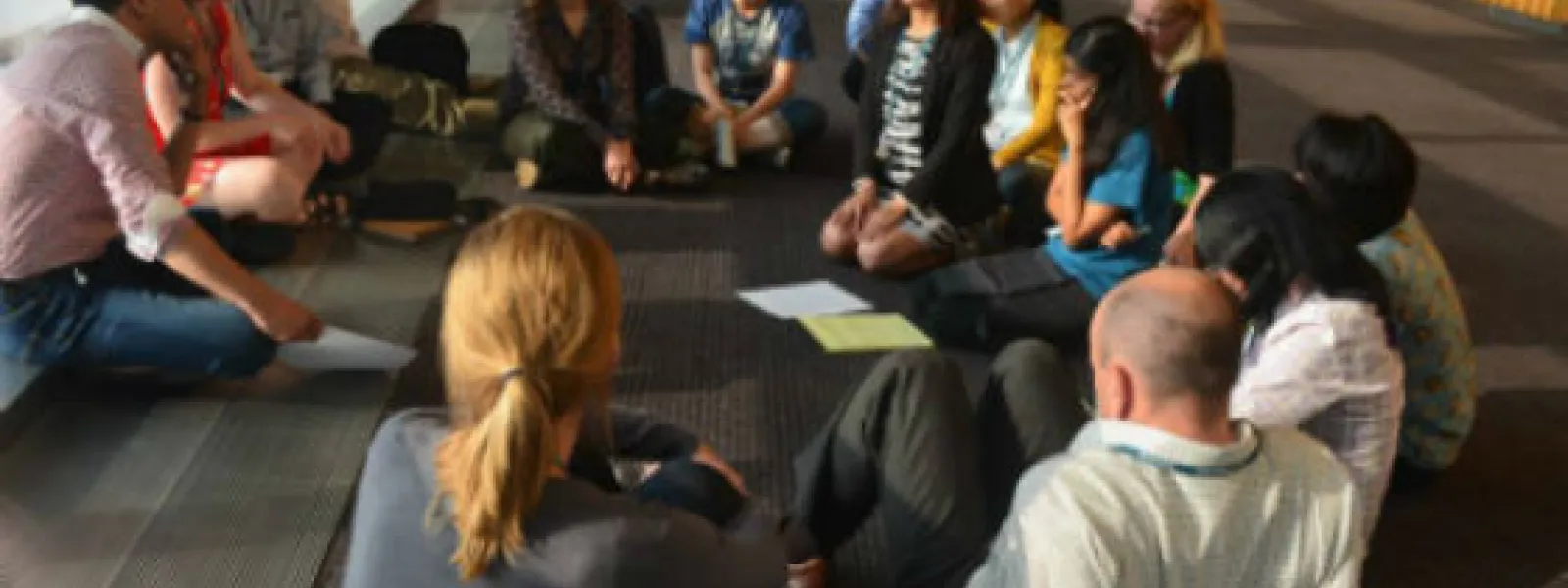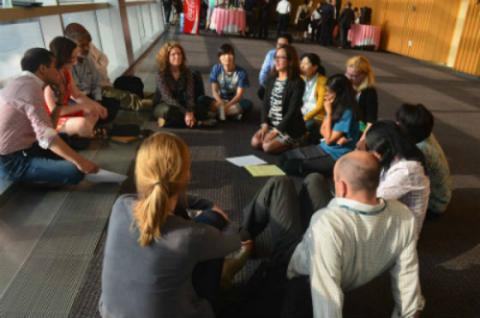
"No thank you" says the Green Climate Fund Board to transparency and civil society input
Credit: Katherine DemesaBy Andrea Rodríguez, legal advisor, AIDA,@arodriguezosuna
Once again civil society organizations expressed disappointment at the lack of transparency and civil society engagement at the latest meeting of the board of the Green Climate Fund (GCF), an operating entity of the United Nations Convention Framework for Climate Change (UNFCCC).
The 24-member board met June 25-28 in Songdo, South Korea to further advance a process of putting the GCF into operation. The GCF will operate as a mechanism for transferring funds from the developed to developing world in order to help developing countries finance adaptation and mitigation practices to combat climate change.
Civil society organizations have been constantly asking the GCF board for better opportunities for civil society to effectively be involved in the GCF decision-making process. Organizations have sent letters to board members, advisors and the GCF Interim Secretariat. But these many attempts to draw attention and consideration to civil society’s concerns have come to no avail. The board has constantly closed the doors to civil society’s active and effective participation.
At board meetings, civil society may only have two active observers in the meeting room: one representing the north and the other the south. The other accredited observers have to sit in an overflow room to watch the meeting. The two active observers may only engage in the meeting if invited by the co-chairs of the board. Only one intervention can be made per each agenda item of the meeting and for no more than three minutes each time.
On the last day of the Songdo meeting, the co-chairs disallowed any interventions from civil society, claiming there was not enough time. Ironically, the most important decisions were made on the last day. Given these limitations imposed by the co-chairs, the two active observers in the meeting room approached several board members to share key points on different papers from the perspective of civil society. The co-chairs, however, penalized this action and forbade the active observers from talking to board members.
Despite the frustration of the being undermined and excluded, civil society was hoping to win at least one battle at the meeting: getting the board to decide in favor of live webcasting.
Live webcasting shows a commitment to accountability and transparency. It provides opportunities for people without the resources to travel to board meetings to get involved in the meeting while also limiting the CO2 emissions generated by each board meeting through a reduction in the number of international flights taken for attendance. Webcasting is widely used by climate-related funds and is even used by the UNFCCC, the international environmental treaty of which the GCF is part.
In Songdo, the GCF board decided against live webcasting on the argument that it would be too expensive at US$20,000 to US$30,000 per meeting. The board’s reference prices, however, are far more than the market average of US$1200 per day. According to the Adaptation Fund (AF) Secretariat and its webcast provider, live-streaming of AF board meetings costs about $1,000-$1,250 per day of broadcast, depending on site specific issues.
Instead of live webcasting, the GCF board agreed to make webcasts of the meeting accessible three weeks after the event upon registration. Civil society organizations believe that this three-week delay prohibits organizations from advocating on the issues related to the discussions and decisions at the meeting.
The Green Climate Fund has decided to have a strategic focus on climate mitigation and adaptation and seek to maximize sustainable development. Nevertheless, it is difficult to understand how the fund would ever be able to maximize “sustainable development” if its decisions are not made with the support of effective stakeholder participation and engagement throughout the whole process.
